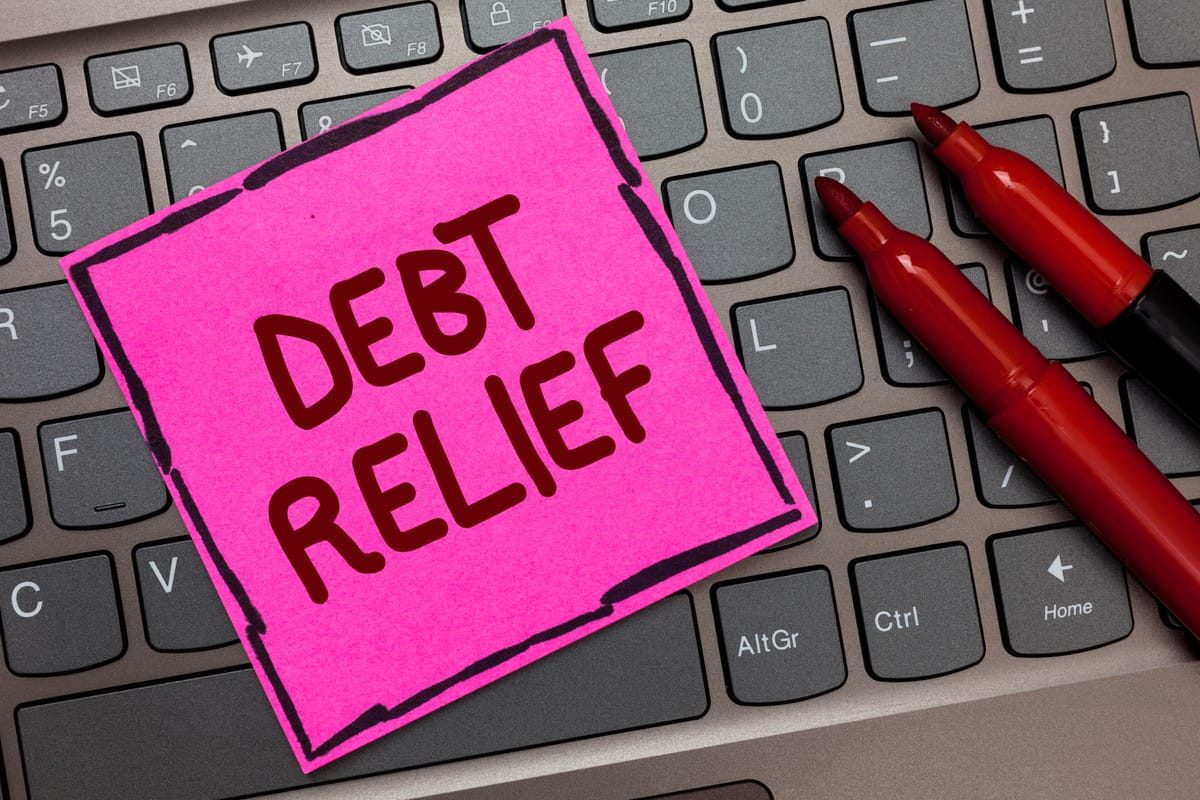Research shows that consumers hold a collective $14 trillion in debt. Are you included in that statistic? If so, it’s easy to become overwhelmed by your obligations. Many different kinds of debt can threaten your financial stability, from credit cards to student loans. Yet, although the burden can feel crushing, there is a way out.
Debt relief programs were created to help you pay back your creditors in a quicker and more manageable way. This might mean securing a lower interest rate, breaking up your total into smaller payments, or adjusting your terms and timelines to fit your current situation better.
Today, we’re going to look at how these programs work and how to choose the right company as you move forward.
What Is Debt Relief?
In short, debt relief helps you navigate, reduce, and hopefully eliminate your total debt obligations.
Debt relief programs can go by a few different names. These include:
- Debt negotiation
- Debt settlement
- Debt resolution
Each company that you research will have its way of helping you find relief from your debt burden. Yet, they all share the same overarching aim. These programs are designed to reduce the amount you owe and help you pay it back under better terms.
Minimum Debt Requirements
Usually, these programs are reserved for those juggling large amounts of debt, such as those incurred with federal student loans. Many debt relief companies will have a minimum debt threshold to ensure that you’re a qualified candidate before moving forward with your application.
This is because creditors looking to collect on a large sum of money are more likely to settle with a debt relief company. They know that if you’re already struggling to cover your minimum monthly payment, it could be months or even years before the entire obligation is resolved in full.
As such, settling is more beneficial to them than waiting and hoping you won’t default. This way, they can be assured that they’ll at least receive back a portion of the amount they credited you in the first place.
On the other hand, if your debt is minimal, those creditors know that you can realistically pay it off quickly. As such, they’re often less willing to reach an agreement to lower the amount just for convenience.
Secured Versus Unsecured Loans
Another caveat that most debt relief programs include? These are usually allocated for unsecured loans only. These are loans that do not include collateral. That means that your mortgage will not qualify, as your home secures it. The same applies to your auto loan, which is secured by your vehicle.
On the other hand, most kinds of unsecured loans are accepted. These include, but are not limited to:
- Medical debt
- Credit card debt
- Personal loans
Certain programs will offer assistance in this regard if you’re looking for an easier way to pay back your private student loans.
How Does Debt Relief Work?
First, you’ll do your research to identify the top debt relief companies that meet your need. Once you reach out to one of their certified debt consultants, they’ll review your situation and determine if their program is the right fit for your needs.
If the answer is affirmative and you agree to their terms, you can get started almost immediately. The company will contact all of your creditors on your behalf to negotiate better rates and lower, more manageable payments. In the meantime, you will cease making payments to those creditors.
Instead, you’ll open up an individual, dedicated account with your debt relief company, and start putting money aside to save for future payments. If the creditors agree to the proposed terms, the company you team with will begin paying them back each month using the money that you saved.
Do Debt Relief Programs Work?
Debt relief programs can work, as long as you partner with the right company. While there are many valid providers in this space, there are, unfortunately, some scammers looking to capitalize on an already-vulnerable population. The following actions are some of the telltale signs that you might be communicating with a scam company:
- Charging fees before settling your debt
- Being vague or suspicious about their pricing structure
- Requiring full control over your debt settlement account
- Guaranteeing full debt settlement before contacting your creditors
- Guaranteeing to cease all debt collection calls fully
- Marketing their approach as a “government program”
- Requiring that you cut off all communication with your creditors
The company you choose should be able to answer any question you have with full honesty and transparency. You should be able to inquire about pricing, terms, and other conditions without receiving a vague answer that makes you uncomfortable. Remember: Your money is on the line, and it’s worth the time it takes to do your due diligence.
Save Money And Find Debt Relief Today
When you’re overwhelmed by debt, it can seem like there’s no way out. However, there are resources designed to help you reduce and eliminate the cloud hanging over your head.
Debt relief companies can be the light at the end of the tunnel, but it’s essential to do some research and only choose one that’s proven to be reliable and trustworthy. Are you looking for more financial advice as you navigate these new waters? We’d love to help.
Feel free to browse our expert guides on a variety of topics, from insurance to credit cards. We’ll help you learn to save money, invest for the future, and eliminate any obstacles that are holding you back from financial freedom.

